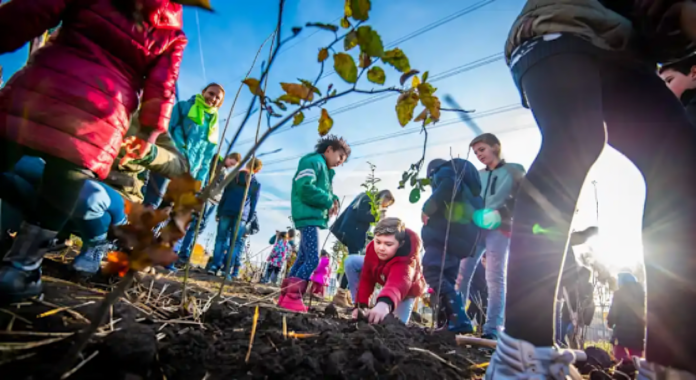In a bid to tackle winter smog, the Environmental Protection Department has introduced Miyawaki Forests as part of an anti-smog campaign across Rawalpindi. As part of this effort, schools, colleges, and universities in the region have been directed to plant mini Miyawaki forests in available spaces starting this September 2024. However, school playgrounds will remain unaffected by this plantation drive, ensuring that students still have adequate space for recreation.
What Are Miyawaki Forests?
Miyawaki forests are a revolutionary urban afforestation technique developed by Japanese botanist Dr. Akira Miyawaki. These forests consist of densely planted native species and are designed to grow rapidly, offering a sustainable green solution in urban environments. Unlike traditional forests, Miyawaki forests grow 10 times faster and are 30 times denser, making them an ideal option for cities looking to enhance green cover and reduce pollution.
Benefits of Miyawaki Forests
- Rapid Growth: The Miyawaki method accelerates tree growth. In Rawalpindi, the first Miyawaki forest was planted in April 2021, and within just three and a half months, trees grew to heights of 8 to 10 feet. This fast growth rate is critical for quickly improving air quality and combating smog.
- Biodiversity Boost: These forests will feature local fruit and shade trees from the Potohar region, encouraging the return of wild birds to the area. Special wooden and colorful nests will be installed in these forests to support bird habitats, contributing to the revival of urban wildlife.
- Eco-Friendly Solution: In addition to reducing smog, Miyawaki forests help in carbon sequestration, making the air cleaner and healthier for residents.
- Increased Green Spaces: These mini-forests create more green spaces within urban environments, contributing to a cooler microclimate and enhancing the overall aesthetic of the area.
Progress of Miyawaki Forests in Rawalpindi
Two years ago, the city approved four new Miyawaki forest projects as part of its ongoing tree plantation campaigns. The first of these forests was completed between April and June 2021, demonstrating the remarkable efficiency of this method. The recent monsoon rains have further accelerated the growth of these forests, proving them to be a valuable asset in the city’s fight against air pollution.
According to the Rawalpindi Development Authority (RDA) chief, the Miyawaki forest technique is one of the most effective urban forestation methods. By using this technique, Rawalpindi aims to increase its green cover and tackle the environmental challenges posed by urbanization.
Additional Environmental Initiatives
Alongside the planting of Miyawaki forests, the department has also introduced additional eco-friendly measures in schools and colleges. A complete ban on single-use plastics has been enforced in canteens, cafes, hostels, and food stalls across educational institutions. The use of disposable utensils, cups, and plates is now prohibited, with violators facing legal action. To encourage proper waste disposal, colourful waste bins will be placed on campuses.
These initiatives are being rolled out in collaboration with the Department of Education, following directives from the Punjab Government. Circulars have already been sent to district and tehsil education officers, as well as school and college principals, to ensure compliance with these new environmental guidelines.


